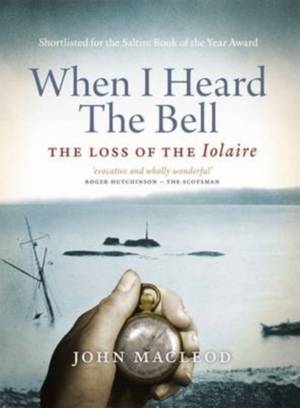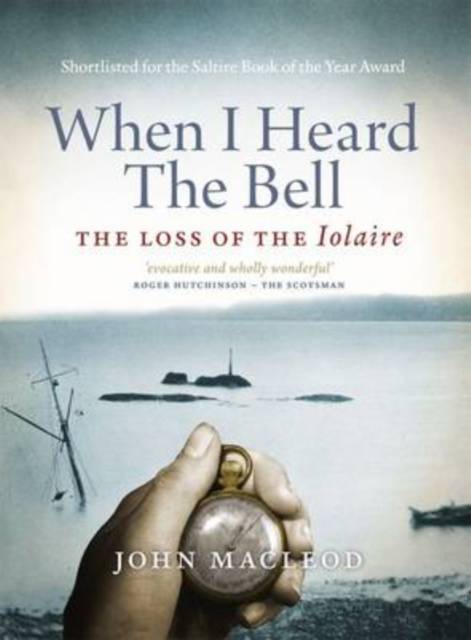
- Retrait gratuit dans votre magasin Club
- 7.000.000 titres dans notre catalogue
- Payer en toute sécurité
- Toujours un magasin près de chez vous
- Retrait gratuit dans votre magasin Club
- 7.000.000 titres dans notre catalogue
- Payer en toute sécurité
- Toujours un magasin près de chez vous
14,95 €
+ 29 points
Description
On 31 December 1918, hours from the first New Year of peace, hundreds of Royal Naval Reservists from the Isle of Lewis poured off successive trains onto the quayside at Kyle of Lochalsh. A chaotic Admiralty had made no adequate arrangements for their safe journey home. Corners were cut, an elderly and recently requisitioned steam-yacht was sent from Stornoway, and that evening HMY Iolaire sailed from Kyle of Lochalsh, grossly overloaded and with life-belts for less than a third of all on board. The Iolaire never made it. At two in the morning, in pitch-black and stormy conditions, she piled onto rocks only yards from the harbour entrance and just half a mile from Stornoway pier, where thronged friends and relatives eagerly awaited the return of their heroes. 205 men drowned, 188 of them natives of Lewis and Harris - men who had come through all the alarms and dangers of the First World War only to die on their own doorstep, at the mouth of a harbour many could themselves have navigated with ease, on a day precious to Highlanders for family, celebration and togetherness. The loss of the Iolaire remains the worst peacetime British disaster at sea since the sinking of the Titanic.
Yet, beyond the Western Isles, few have ever heard of what is not only one of the cruellest events in our history but an extraordinary maritime mystery - a tale not only of bureaucrats in a hurry, unfathomable Naval incompetence and abiding, official contempt for the lives of Highlanders, but of individual heroism, astonishing escapes, heart-rending anecdote and the resilience and faith of a remarkable people.
In the first English account and on the ninetieth anniversary of the 'dark ship', John MacLeod tells the story of the Iolaire, the astonishing commitment of the people of Lewis to the war against the Kaiser, its sickening end, and the way of life the disaster effectively destroyed - a tipping-point, he argues, in the overthrow of an old human economy and which deprived the Isle of Lewis of an entire generation.
Yet, beyond the Western Isles, few have ever heard of what is not only one of the cruellest events in our history but an extraordinary maritime mystery - a tale not only of bureaucrats in a hurry, unfathomable Naval incompetence and abiding, official contempt for the lives of Highlanders, but of individual heroism, astonishing escapes, heart-rending anecdote and the resilience and faith of a remarkable people.
In the first English account and on the ninetieth anniversary of the 'dark ship', John MacLeod tells the story of the Iolaire, the astonishing commitment of the people of Lewis to the war against the Kaiser, its sickening end, and the way of life the disaster effectively destroyed - a tipping-point, he argues, in the overthrow of an old human economy and which deprived the Isle of Lewis of an entire generation.
Spécifications
Parties prenantes
- Auteur(s) :
- Editeur:
Contenu
- Nombre de pages :
- 272
- Langue:
- Anglais
Caractéristiques
- EAN:
- 9781841588582
- Date de parution :
- 07-07-10
- Format:
- Livre broché
- Format numérique:
- Trade paperback (VS)
- Dimensions :
- 150 mm x 199 mm
- Poids :
- 385 g







